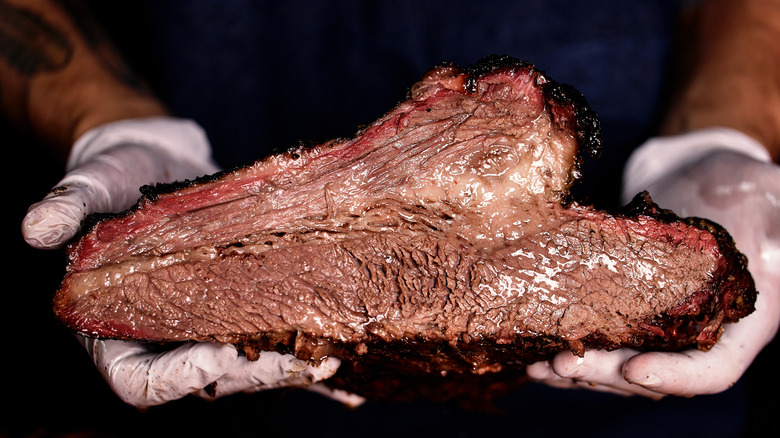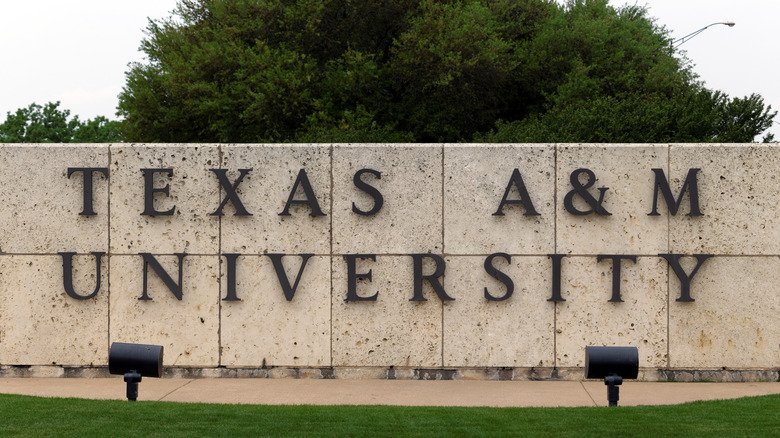The College That's Producing The Best BBQ Pitmasters
Texas is known for its mouthwatering contribution to the fast food industry, Whataburger, its continued tradition of having cowhands herd cattle in Fort Worth, and, of course, its iconic barbecue. Long before Texas was a member of the barbecue belt, barbecuing food was a concept that American colonies learned from Native Americans (via Smithsonian Magazine). However, Texas barbecue's cooking style and meat selection were noted by the Texas Historical Commission to have been inspired by South African and German traditions. And the word "barbecue" in the state is credited to have a connection to the Spanish word barbacoa — which references a method of barbecue where "the meat is wrapped and cooked in a pit of coals," per the Texas Historical Commission, and which is popular in the southern part of Texas.
Given that barbecue is a significant part of America's food culture, the idea of someone going to college with the hope of becoming a BBQ pitmaster isn't that outlandish. And considering Texas' connection to the cooking method, it seems only natural that the Lone Star State would be the home of a school with a passion for barbecue education.
Texas A&M University is serious about BBQ
First called the Agricultural and Mechanical College of Texas before it switched to Texas A&M University in 1963, Texas A&M opened its doors in 1876 as Texas's first college (via Texas A&M University). Though Texas A&M's programs and prestige have evolved significantly since it first opened, the College of Agriculture Life and Sciences was one of the university's original departments and is the place to be for barbecue champions in training (per Texas A&M Today).
It's the Department of Animal Science in particular that allows its students to discover the best methods for barbecuing and handling different types of meat. In meat science programs, classes focus on "food safety relating to the various cuts and grades of meat, seasonings, marinades, spices, and rubs to the pits, smokers, and grills." Some Texas A&M students even boast barbecue master lineage and show up eager to learn the science-proven and research-based approaches to the craft that will help them succeed once they take over their family businesses.
The university also extends its expertise to those not attending the college by hosting a Barbecue Summer Camp where attendees are taught the science behind good barbecue. Through its educational programs and community outreach, Texas A&M demonstrates it's not only a place for students to learn about the best way to barbecue, it's also an important hub for the further development of a Texas cultural tradition.

